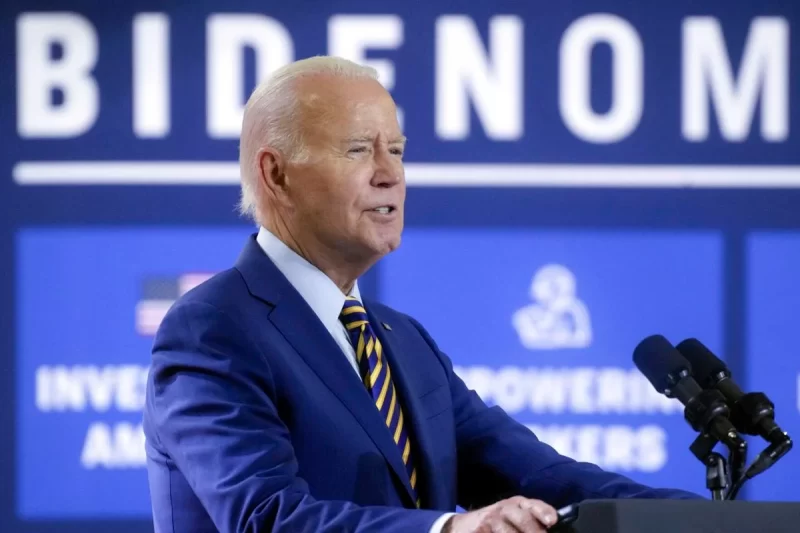By Brett Rowland | The Center Square
(The Center Square) – Voters are concerned about excessive government spending, but issues such as inflation are more important in the run-up to the 2024 election.
The Center Square Voters’ Voice Poll, conducted by Noble Predictive Insights, found that while 89% of voters are very or somewhat concerned about government spending, only 16% have it among their top three issues.
Spending is less of a focus than inflation (44%); crime/violence (27%); illegal immigration and climate change (both 25%); economy/jobs (23%); and abortion rights (20%), according to a survey of 2,500 registered voters.
Many voters are reminded about inflation on an almost daily basis, Mike Noble, founder and CEO of Noble Predictive Insights, said.
“Inflation is more visible,” he said. “For example, the grocery store, you could fill up the cart 10 years ago with $100 – you’re overflowing your cart, you’re living large. But $100 now, you’re maybe half full, if that.”
The gas station is another reminder of inflation for many voters.
“Every time you go to the pump, you’re sitting there, like who the heck’s running this place?” Noble said. “Because each time you go there, you’re feeling that pain point and that’s why inflation is more visible.”
Government spending is far less visible, in many ways, than inflation. Voters watched Washington during the debt-ceiling talks, but then House Republicans and President Joe Biden reached a deal just ahead of a deadline to avert a default. Had the two sides failed to reach a deal, voters would have felt the economic consequences and spending might have been in the forefront for more voters, Noble said.
Even among Republicans, the party typically associated with small government, government spending was only among the top three issues for 23% of voters. Among registered Republicans, government spending was outranked by inflation (50%), illegal immigration (42%), government corruption (26%) and the economy/jobs (25%).
In August, Fitch Ratings downgraded the U.S. government’s credit rating from the highest level of AAA down one tier to AA+. Fitch pointed to the U.S. government’s high national debt and annual budget deficits and an “erosion of governance.”
In February, the U.S. Government Accountability Office’s audit of the federal government’s financial statements found it “continues to face an unsustainable long-term fiscal path.”
At the end of fiscal year 2022, debt held by the public was about 97% of gross domestic product, according to a May report from the U.S. Government Accountability Office. The U.S. debt is projected to grow faster than its economy. Debt held by the public is projected to reach its historical high of 106% of GDP within a decade. The Government Accountability Office projects that this ratio could reach more than twice the size of the economy by 2051 without changes to revenue and spending policies.
The International Monetary Fund listed the United States’ debt as a percentage of GDP at 106% in 2021. Countries with high debt-to-GDP figures in 2021 included Cyprus (142.82%), Italy (146.55%), Singapore (163.89%), Eritrea (176.25%), Sudan (181.97%), Greece (212.4%) and Japan (221.32%).
Earlier poll results in The Center Square Voters’ Voices Poll indicate GOP frontrunners former President Donald Trump and Florida Gov. Ron DeSantis would be locked in tight races with Biden and that Biden is largely underwater with voters in a number of key descriptors.
The poll was conducted by Noble Predictive Insights from July 31 to Aug. 3. Unlike traditional national polls, with limited respondent count of about 1,000, Noble Predictive surveyed 1,000 registered Republicans, 1,000 registered Democrats, and 500 independents, culminating in a sample size of 2,500. The margin of error for the aggregate sample was ±2.4%, with each political group independently weighted. For information about the methodology, visit www.noblepredictiveinsights.com.
